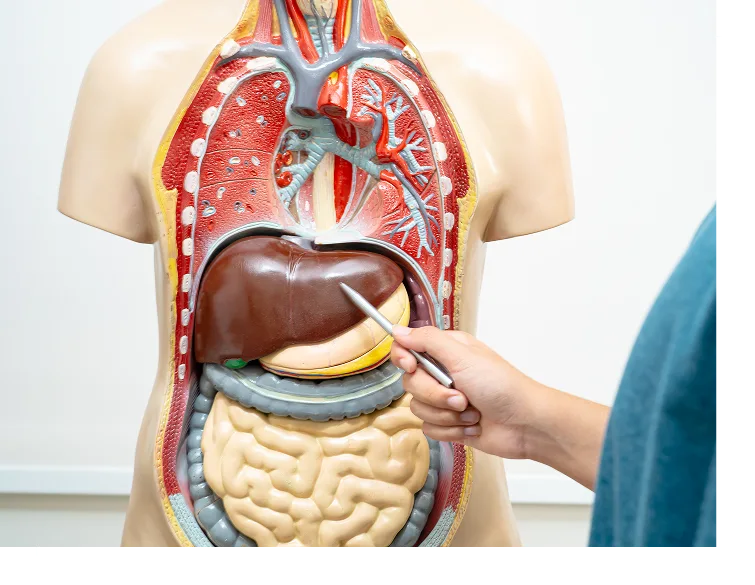Overview
Ascites is a fluid buildup in the abdomen, causing swelling, discomfort, bloating, and a visibly distended belly. This condition is often linked to liver diseases, such as cirrhosis, but can also result from cancer, heart failure, or infections.

Symptoms of Ascites
If you’re experiencing symptoms of ascites, consulting a qualified medical expert is vital for timely diagnosis and proper treatment. In Kolkata, you can find an experienced doctor for ascites treatment who can guide you through the treatment process.
Noticeable abdominal swelling
Rapid Weight gain
Difficulty breathing or moving comfortably
Loss of appetite or nausea
Enlarged abdominal girth
Feeling of heaviness or tightness in the abdomen
Difficulty eating
Swollen legs or ankles
Conditions Causing Ascites
Cirrhosis
The most common cause, where scar tissue replaces healthy liver tissue and damages liver function.
Cancer
Particularly cancers of the liver, pancreas, or ovaries.
Mesothelioma
This rare cancer affects the lining of the abdomen and can lead to fluid accumulation and ascites.
Heart Failure
When the heart weakens and struggles to pump blood efficiently, fluid can back up into the abdomen.
Kidney Disease
An imbalance in body fluids may result in ascites.
Alcoholic Hepatitis
Long-term alcohol use damages the liver, causing inflammation and fluid retention in the abdomen.
Chronic Hepatitis B or C Infection
Persistent viral infections can result in liver scarring and ascites as complications.
Fatty Liver Disease
Excess fat in the liver may progress to cirrhosis, a common cause of ascites.
Book An Appointment
Evaluation
Medical examination
Ultrasound or CT scans
Paracentesis
Blood tests
Laboratory tests (ascitic fluid analysis, serum and urine electrolytes)
Liver and renal function
Treatment
Dietary sodium restriction
Water pills (diuretics)
Therapeutic drainage
Treatment for underlying liver conditions
TIPS (Transjugular Intrahepatic Portosystemic Shunt) may be
advised for cirrhotic ascites treatment
A liver transplant (in extreme cases of liver failure)

FAQs
Know Your Answers
Can mild ascites go away on its own?
Early-stage ascites often improves with proper diet and medications, but needs medical supervision.
Is ascites a sign of liver failure?
Ascites can be a sign of advanced liver disease, but it can also occur due to other conditions. It’s important to get a proper diagnosis to determine the cause.
Is ascites life-threatening?
Severe ascites can cause complications like infection or kidney issues, requiring prompt treatment of ascites.
How long does medical treatment for ascites take?
Treatment duration varies from weeks to months, depending on the underlying cause and severity.
What happens if ascites is left untreated?
Untreated ascites can lead to malnutrition, infections, respiratory problems, and other serious complications.

